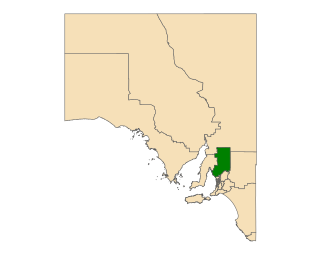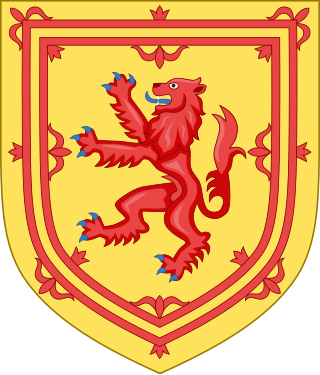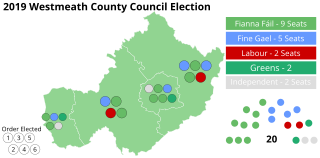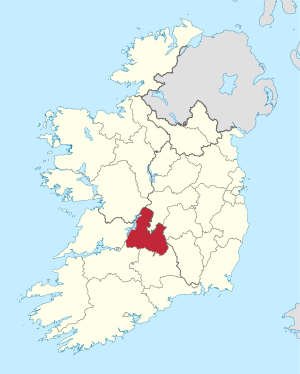
Proportional representation (PR) refers to a type of electoral system under which subgroups of an electorate are reflected proportionately in the elected body. The concept applies mainly to political divisions among voters. The essence of such systems is that all votes cast – or almost all votes cast – contribute to the result and are effectively used to help elect someone – not just a bare plurality or (exclusively) the majority – and that the system produces mixed, balanced representation reflecting how votes are cast.

The single transferable vote (STV), sometimes known as proportional ranked choice voting (P-RCV), is a multi-winner electoral system in which each voter casts a single vote in the form of a ranked-choice ballot. Voters have the option to rank candidates, and their vote may be transferred according to alternate preferences if their preferred candidate is eliminated or elected with surplus votes, so that their vote is used to elect someone they prefer over others in the running. STV aims to approach proportional representation based on votes cast in the district where it is used, so that each vote is worth about the same as another.

Elections in Portugal are free, fair, and regularly held, in accordance with election law.

Dublin West is a parliamentary constituency represented in Dáil Éireann, the lower house of the Irish parliament or Oireachtas. The constituency elects 4 deputies on the system of proportional representation by means of the single transferable vote (PR-STV).

Frome is a single-member electoral district for the South Australian House of Assembly. It is named after Edward Charles Frome, the third surveyor-general of South Australia. The electorate stretches north-eastwards from the Gawler River and Gulf St Vincent in the south, and includes many of the agricultural areas of the Clare and Gilbert Valleys. It covers a total of 12,921 km2 (4,989 sq mi) and takes in the towns of Auburn, Clare, Mintaro, Port Broughton, Saddleworth, Snowtown and Riverton. Prior to the 2020 redistribution, its main population centre was Port Pirie, since transferred to the Stuart.

Scotland has elections to several bodies: the Scottish Parliament, the United Kingdom Parliament, local councils and community councils. Before the United Kingdom left the European Union, Scotland elected members to the European Parliament.

Westmeath County Council is the authority responsible for local government in County Westmeath, Ireland. As a county council, it is governed by the Local Government Act 2001. The council is responsible for housing and community, roads and transportation, urban planning and development, amenity and culture, and environment. The council has 20 elected members. Elections are held every five years and are by single transferable vote. The head of the council has the title of Cathaoirleach (chairperson). The county administration is headed by a Chief Executive, Pat Gallagher. The county town is Mullingar.
There are four types of elections in Wales: elections to the House of Commons of the United Kingdom, elections to the devolved Senedd, local elections to the 22 principal areas, and the Police and Crime Commissioner elections, in addition to by-elections for each aforementioned election. Elections are held on Election Day, which is conventionally a Thursday. Since the passing of the Fixed-term Parliaments Act 2011 for UK general elections, all four types of elections are held after fixed periods, though early elections to the UK parliament can occur in certain situations, with Senedd elections being postponed to avoid elections to the UK parliament and Senedd coinciding with each other.

There are five types of elections in the United Kingdom: elections to the House of Commons of the United Kingdom, elections to devolved parliaments and assemblies, local elections, mayoral elections, and Police and Crime Commissioner elections. Within each of those categories, there may also be by-elections. Elections are held on Election Day, which is conventionally a Thursday, and under the provisions of the Dissolution and Calling of Parliament Act 2022 the timing of general elections can be held at the discretion of the prime minister during any five-year period. All other types of elections are held after fixed periods, though early elections to the devolved assemblies and parliaments can occur in certain situations. The five electoral systems used are: the single member plurality system (first-past-the-post), the multi-member plurality, the single transferable vote, the additional member system, and the supplementary vote.

An election to Dublin City Council took place on 5 June 2009 as part of that year's Irish local elections. 52 councillors were elected from thirteen local electoral areas (LEAs) for a five-year term of office on the electoral system of proportional representation by means of the single transferable vote (PR-STV).

An election to Kerry County Council took place on 5 June 2009 as part of that year's Irish local elections. 27 councillors were elected from five local electoral areas (LEAs) for a five-year term of office on the electoral system of proportional representation by means of the single transferable vote (PR-STV).

An election to South Tipperary County Council took place on 5 June 2009 as part of that year's Irish local elections. 26 councillors were elected from five local electoral areas (LEAs) for a five-year term of office on the electoral system of proportional representation by means of the single transferable vote (PR-STV).
A mixed electoral system or mixed-member electoral system combines methods of majoritarian and proportional representation (PR). The majoritarian component is usually first-past-the-post voting (FPTP/SMP), whereas the proportional component is most often based on party-list PR. The results of the combination may be mixed-member proportional (MMP), where the overall results of the elections are proportional, or mixed-member majoritarian, in which case the overall results are semi-proportional, retaining disproportionalities from the majoritarian component.

An election to Carlow County Council was held in County Carlow in Ireland on 24 May 2019 as part of that year's local elections. All 18 councillors were elected for a five-year term of office from three local electoral areas (LEAs) on the electoral system of proportional representation by means of the single transferable vote (PR-STV).

An election to Monaghan County Council took place on 24 May 2019 as part of that year's local elections. All 18 councillors were elected for a five-year term of office from 3 local electoral areas (LEAs) by single transferable vote. The 2018 LEA boundary review committee kept the LEAs used in the 2014 elections, adjusting the boundaries and moving one seat from Ballybay–Clones LEA to Monaghan LEA.

A Roscommon County Council election was held in County Roscommon in Ireland on 24 May 2019 as part of that year's local elections. All 18 councillors were elected for a five-year term of office from 3 local electoral areas (LEAs) by single transferable vote. Only three political parties fielded candidates in Roscommon, the fewest of any Irish county/city in the 2019 local elections. The 2018 LEA boundary review committee made no changes to the LEAs used in the 2014 elections.

A Westmeath County Council election was held in County Westmeath in Ireland on 24 May 2019 as part of that year's local elections. All 20 councillors were elected for a five-year term of office from 4 local electoral areas (LEAs) by single transferable vote. The 2018 LEA boundary review committee replaced the three LEAs used in the 2014 elections.

An election to the electoral county of Dublin–Belgard within Dublin County to Dublin County Council took place on 20 June 1985 as part of that year's Irish local elections. Councillors were elected from local electoral areas on the system of proportional representation by means of the single transferable vote voting for a five-year term of office.This term was extended for a further year, to 1991.
An election to Dublin County Council in the electoral county of Dublin–Fingal within Dublin County took place on 20 June 1985 as part of that year's Irish local elections. Councillors were elected from local electoral areas on the system of proportional representation by means of the single transferable vote voting for a five-year term of office. This term was extended for a further year, to 1991.
An election to the electoral county of Dún Laoghaire–Rathdown within Dublin County to Dublin County Council took place on 20 June 1985 as part of that year's Irish local elections. Councillors were elected from local electoral areas on the system of proportional representation by means of the single transferable vote voting for a five-year term of office. This term was extended for a further year, to 1991.
















